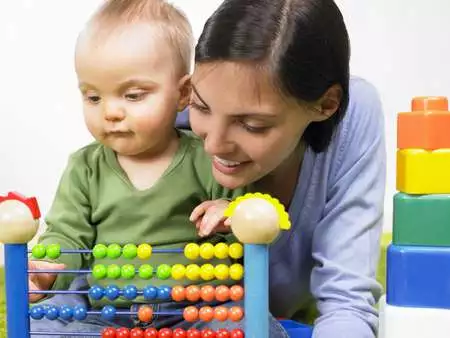Iron deficiency is one of the most common nutritional deficiencies worldwide with potentially dangerous consequences. This article summarises the current positions of the Nutrition Committee of the European Society for Paediatric Gastroenterology, Hepatology and Nutrition (ESPGHTN N), the Nutrition Committee of the American Academy of Pediatrics and the Centers for Disease Control and Prevention on the role of iron in infant nutrition, with particular emphasis on recommendations on how to prevent iron deficiency.
Iron deficiency anaemia
According to the definition adopted by the World Health Organisation (WHO), anaemia in children under 5 years of age is referred to when the haemoglobin level in the red blood cells is below 110 g/l (11 g%).13 The hallmarks of iron deficiency anaemia, in addition to a decrease in total haemoglobin, are a decrease in MCHC - mean haemoglobin concentration in erythrocytes, a decrease in MCH - mean haemoglobin content in erythrocytes, a decrease in MCV - mean erythrocyte volume, microcytosis and anisocytosis, decreased plasma ferritin levels and increased levels of total iron binding capacity. It is estimated that iron deficiency anaemia - depending on the accepted definition and population - occurs in approximately 10-50% of children.14 The actual prevalence of iron deficiency anaemia in the first years of life will not be known until the factors affecting iron homeostasis and regulation of iron metabolism are better understood. Currently accepted indicators (Hb < 110 g/l, ferritin < 12 μg/l) probably overestimate the prevalence of iron deficiency and iron deficiency anaemia.2
Consequences of iron deficiency- psychomotor development and cognitive function
Iron is essential for the normal functioning of the central nervous system. It is involved in the production of myelin sheaths of nerve fibres and the maintenance of their normal function. It is also needed for the normal metabolism of dopamine, as iron deficiency impairs its reuptake in the brain. Iron deficiency also affects the metabolism and function of other neurotransmitters (serotonin and GABA).2 3 Most information on the effects of iron on brain function comes from animal studies. These have shown that iron deficiency during the early, critical period of brain development - in contrast to deficiency later in life - causes changes in the brain, manifested by behavioural disturbances that do not resolve despite iron.15 16 17 These observations are extremely important, as they suggest that iron deficiency during the development of the central nervous system in infants and young children may negatively affect iron content in brain tissue and thus irreversibly impair psychomotor development and central nervous system function.

photo ojoimages
Experts from the ESPGHTN N2 Nutrition Committee and the Scientific Committee on Food11 summarised the results of clinical trials to assess the consequences of iron deficiency and iron deficiency anaemia in infants and young children under 2 years of age. They concluded that the available scientific evidence did not support a definitive conclusion on the relationship between iron deficiency (running without or with anaemia) and cognitive (cognitive) impairment. The reason for this may be that populations of children of different ages were studied and heterogeneous tests were used to assess developmental levels.
The effect of iron administration on psychomotor and cognitive development was also the subject of a systematic review of the literature recently compiled by Cochrane Library experts.18 A meta-analysis of five randomised trials involving 180 children aged <3 years with iron deficiency anaemia did not provide convincing evidence that iron administration has an effect on psychomotor development that is discernible after 5-11 days of treatment. Conflicting results from two randomised trials (160 children in total) do not provide a basis for inferring what the distant effect of iron administration is (at least after 30 days of treatment). The results of the analysis are of limited relevance due to the small number of children included in the studies.
Both the experts of the Nutrition Committee and the authors of the systematic review of the literature - given the importance of the problem - emphasise the urgency of conducting properly designed studies involving a larger number of patients and a longer follow-up period. However, conducting randomised trials in children with symptomatic iron deficiency may be difficult for ethical reasons.2 In addition, it is worth bearing in mind the difficulties in interpreting the results of any studies. Indeed, the lack of effect of iron treatment may be due to both irreversible central nervous system dysfunction and the presence of interfering factors or other nutritional deficiencies.2
Physical development
A number of studies have assessed the effect of iron supplementation on physical development, but the results are inconclusive. Both a beneficial effect,19 20 no effect,21 22 23 and even, if iron was given to children without iron deficiency, an adverse effect of iron supplementation on children's physical development have been demonstrated.24 25









